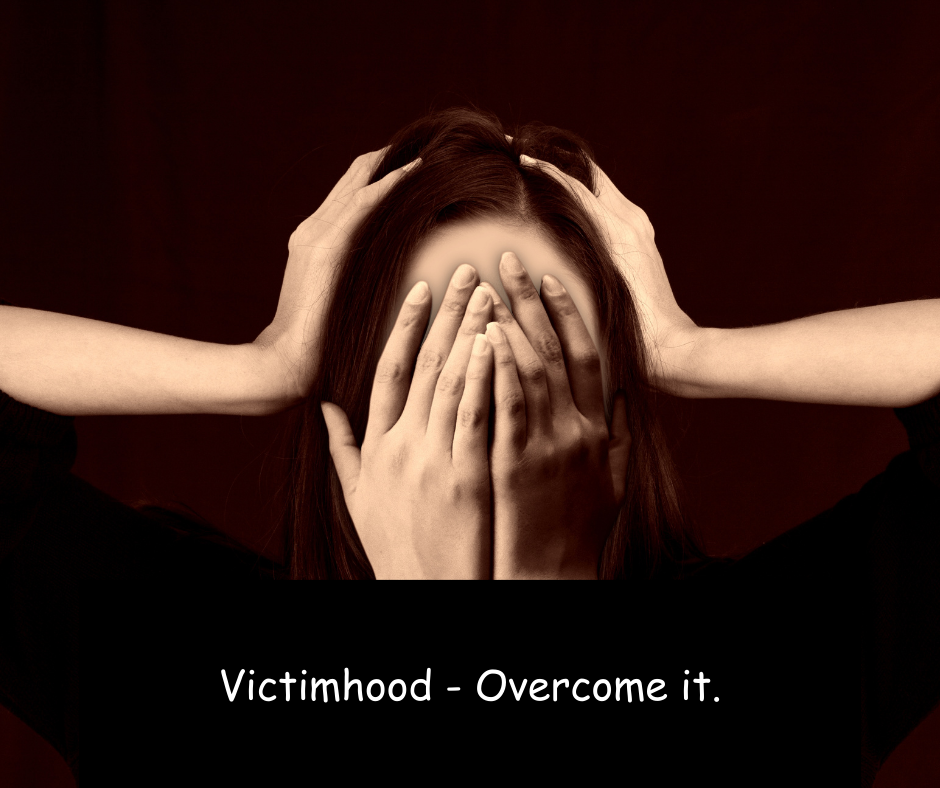“I found myself in a fractured relationship where I gave my all. My emotions, principles, and time were invested completely. My dedication was unwavering. It pains me that I allowed someone to mistreat me, a hurt deeper than the one inflicted by that person. What matters to me is that those who caused me pain never acknowledged or realized my value.”
Encountering such situations is a common experience in relationships, careers, and various aspects of human interaction. Frequently, the individual involved remains unaware of their inclination towards a ‘victim’ mindset. In this essay, we will delve into the depths of victimhood, shedding light on its underlying causes, its tell-tale signs, the far-reaching impact it can have, and effective strategies to overcome it.
Table of Contents
Victimhood – What is this?
In the realm of human experiences, victimhood is a phenomenon that can take hold of individuals, shaping their perceptions, behaviors, and overall outlook on life. Understanding the reasons behind victimhood, recognizing its signs, and comprehending its impact is crucial in order to break free from its grasp and lead a more empowered and fulfilling life.
The Anatomy of Victimhood
Victimhood is a state of mind characterized by a belief that one is constantly at the mercy of external circumstances, forces, or individuals. It often stems from a combination of psychological, social, and environmental factors:
Past Traumas
Previous experiences of hardship, trauma, or mistreatment can create a sense of victimhood. These experiences can be deeply ingrained and shape one’s perception of the world as hostile.
Learned Helplessness
When people repeatedly encounter situations where their efforts seem to yield no results, they may develop a sense of learned helplessness, leading to the belief that they have little or no control over their lives.
External Validation
Seeking validation and sympathy from others for one’s suffering can reinforce victimhood. This external validation can inadvertently encourage the individual to stay in the victim role.
Negative Self-Image
Low self-esteem and a negative self-image can contribute to a victim mentality. People with these issues may struggle to see themselves as capable of overcoming challenges.
Signs of Victim Mentality
Recognizing the signs of a victim mentality is essential for personal growth and development. Some common indicators include:
Blaming
Individuals trapped in victimhood tend to place blame on external factors for their problems, rarely taking responsibility for their own actions or decisions.
Constant Complaining
Chronic complaining about life circumstances without actively seeking solutions can be a sign of victim mentality. This behavior often revolves around dwelling on problems rather than working towards solutions.
Self-Pity
Excessive self-pity and a belief that life is unfair are hallmarks of victimhood. This mindset can keep individuals stuck in a cycle of negative emotions.
Lack of Accountability
Victims often avoid taking responsibility for their actions or decisions, viewing themselves as passive recipients of life’s hardships.
The Impact of Victim Mentality
Embracing a victim mentality can have far-reaching consequences on various aspects of life:
Mental Health
Continuously viewing oneself as a victim can lead to heightened levels of stress, anxiety, and depression.
Relationships
Victim mentality can strain relationships as it fosters a sense of dependency and can make communication and collaboration difficult.
Personal Growth
A victim mindset hinders personal growth by preventing individuals from learning and adapting to challenges.
Achievement
The belief in one’s lack of control over circumstances can impede goal attainment and hinder success.
Overcoming Victimhood: Strategies for Empowerment
We would now proceed to examine the approach to overcome the tendency of ‘victimhood’.
Self-Awareness
Recognizing that one has fallen into a victim mentality is the first step. Cultivating self-awareness allows individuals to question their thought patterns and beliefs.
Ownership
Take responsibility for your own thoughts, emotions, and actions. Acknowledge your capacity to steer the trajectory of your life.
Embrace the power of positivity
Redirect your attention from problems to solutions, and welcome a mindset of growth that sees challenges as chances for learning and personal advancement
Seek Support
Explore the strength in seeking assistance: Extend your hand to friends, family, or experts for guidance and uplifting support.
Set Goals
Articulate your ambitions and establish realistic goals. Working towards these objectives can provide a sense of purpose and accomplishment.
Practice Gratitude
Nurturing a sense of thankfulness can reorient your attention from scarcity to abundance, fostering a brighter perspective on life.
Conclusion
Victimhood is a mindset that can hinder personal growth, relationships, and overall well-being. By understanding its root causes, recognizing its signs, and acknowledging its impact, individuals can take the necessary steps to overcome the victim mentality. Through self-awareness, responsibility, and positive thinking, it’s possible to break free from the chains of victimhood and embrace a life of empowerment, resilience, and fulfillment. Remember, the journey to overcome victim mentality may be challenging, but the rewards of a transformed perspective are well worth the effort.
Suggestion for further study- an online resource
One of the interesting articles on the subject is, “Unravelling the Mindset of Victimhood”, published in Scientific American by Scott Barry Kaufman, Ph.D. He has taught courses at Columbia University, NYU, the University of Pennsylvania, and elsewhere. This article serves as a detailed and comprehensive introduction and refresher on Victimhood for both – a serious student of the subject or anyone who has an amateur who is interested in this subject.
Disclaimer – This write-up is only a piece of information for the purpose of general awareness and not a diagnostic and prescriptive tool. The readers are advised to do further studies for a profound understanding of the subject. Human psychology is a special area of knowledge, and anyone who needs any help is advised to consult a trained specialist.



